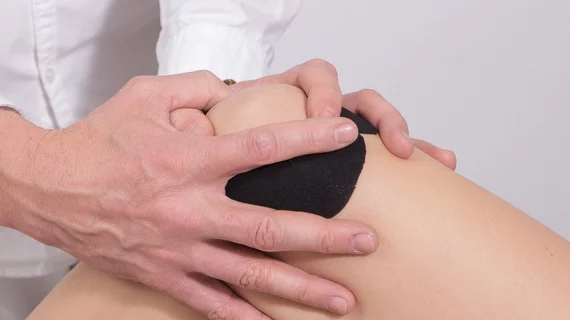Interventional radiologists have found embolization safe and effective for treating knee arthritis, bringing immediate relief to patients who could barely walk, according to a new prospective study.
Genicular artery embolization (GAE) uses tiny particles to control the blood supply in painful and inflamed areas of the knee. During the outpatient procedure, interventionalists navigate a catheter to deliver GAE directly into arteries in arthritic knees.
The effects took hold quickly among 40 patients ineligible for total knee replacement. And one year after treatment, 7 in 10 individuals said their pain levels dropped by more than 50%, reported authors of a new study set to be presented at the Society of Interventional Radiology online annual meeting running March 20-26.
“Prior to treatment, patients’ knee pain had taken over their whole life,” lead author Siddharth A. Padia, MD, a radiology professor at UCLA Health, said in a statement. “But after treatment, patients who initially could walk only three or four blocks were walking three miles. Some were able to do away with walking aids, such as canes, while others reported being in a better mood now that they were living without pain.”
Nearly 40% of adults in the U.S. face daily limitations due to osteoarthritis, making it one of the most common causes of disability, Padia and co-authors explained.
With this in mind, interventional rads treated 40 patients using GAE who did not benefit from conservative therapies, including nonsteroidal anti-inflammatory drugs, joint injections and physical therapy. The procedure took up to two hours, requiring another two hours for recovery. But the benefits were clear.
Many participants experienced pain relief three days following their appointment. And pain scores plummeted from 8 out of 10 before embolization to 3 out of 10 within one week of the procedure, on average.
A few negative side effects, such as transient skin discoloration and small bone infarct, were documented in 10 patients. All problems resolved quickly, without treatment.
Building off their progress, Padia and co-investigators are planning a randomized trial with more patients to see which populations may benefit most.

